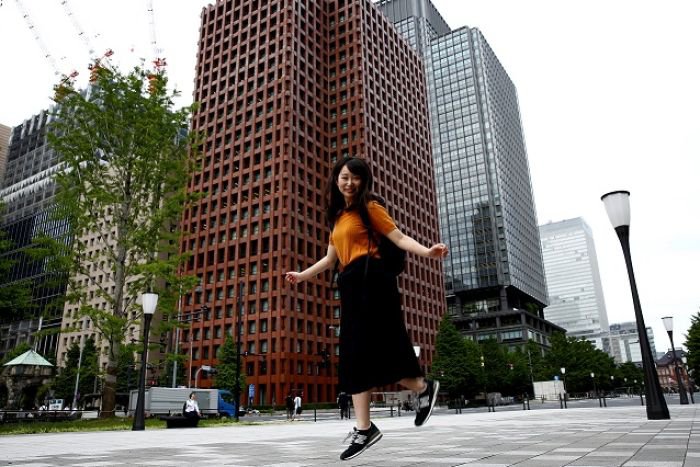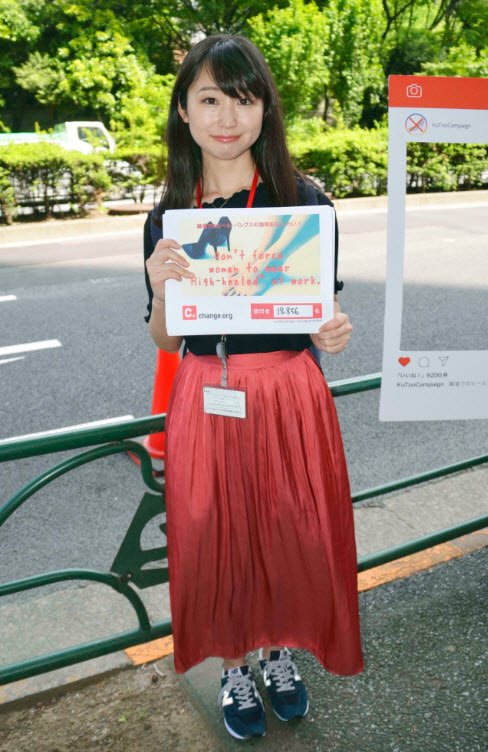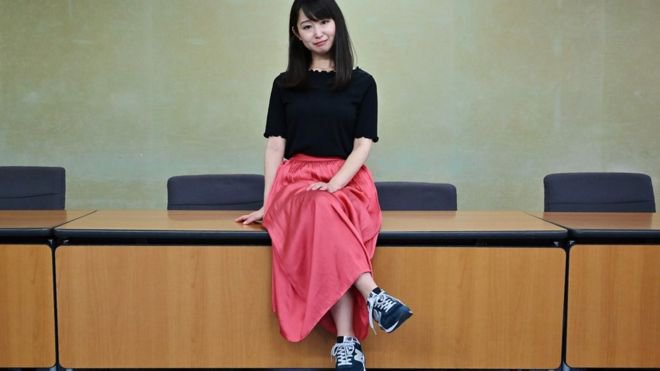Thousands of women from Japan joined hands to support a social media campaign against dress codes and expectations that women must wear high heels at work has gone viral.
About 19,000 women united to sign a petition on 3rd June that was launched by Yumi Ishiwaka, a Tokyo artist, writer and feminist after she tweeted about being forced to wear heels at work. Her tweet gained over 67,000 likes and was re-tweeted almost 30,000 times.
Meet @ishikawa_yumi, the woman behind Japan’s #KuToo movement that sparked thousands to say no to mandatory heels at work #KuToo運動 pic.twitter.com/UPvzQpsky5
— TicToc by Bloomberg (@tictoc) June 7, 2019


Ms. Yumi’s efforts were greeted with skepticism by the government officials and they are yet to respond to the petition.
According to NY Times, after hearing the statement by the government official Yumi said, “I guess the government and corporate communities don’t want to take a risk to change the society.”

While the government officials are still reviewing the petition, here is what Twitter has to say about the #KuToo Movement:
#KuToo I think it’s weird that Japan even has a law that women are required to wear high heels at work. Personally I wouldn’t care what my employees wear on their feet so I support this movement and hope that the law is removed.
— Lucas (@Lucas59346949) June 7, 2019
We are rooting for the #KuToo movement. These flat Maasai sandals will do, thank-you very much!!https://t.co/cyluIwYZi5 pic.twitter.com/CpBSVaEN7D
— PrintsOfAfrica (@AnkaraStylesD) June 7, 2019
@goodoldcatchy’s round up of @ishikawa_yumi’s #KuToo movement, which I’m going to keep tweeting about because it’s important. https://t.co/Mo5h6eUEJq
— Unseen Japan (@UnseenJapanSite) June 8, 2019
The day I stopped wearing high heels to work every day was the day of my liberation. Love ya #KuToo movement! https://t.co/cdAnINbGal
— Lisa Bloom (@LisaBloom) June 7, 2019
# Kutoo movement in japan – I love my heels but my vote is against making it mandatory ! Let our female workforce’s competence speak for itself ! How we dress is a personal choice & cannot be judged or dictated anymore. pic.twitter.com/0PCGFRIgvm
— Namita (@namitathapar) June 7, 2019
Sad that this is still the reality in Japan. But fully supportive of the #KuToo Movement! 💪
— Sawako Sono Clarin (@SawakoSono) June 4, 2019
靴 – ‘kutsu’ – shoe
苦痛 – ‘kutsū’ – pain
Japanese women submit anti-high heels petition | japan @guardian #metoo #ハイヒール https://t.co/FSWMjycCZ2
At the Belgian Embassy all employees are free to choose their footwear — no high heels expected! We stand for #equality, #diversity and #free choice! #KuToo #ハイヒール #MeToo
— Belgium in Japan (@BelgiumEmbJapan) June 4, 2019
😀🥿👠👡👢👞👟🥾😀 pic.twitter.com/QxtkxyUGjl

















